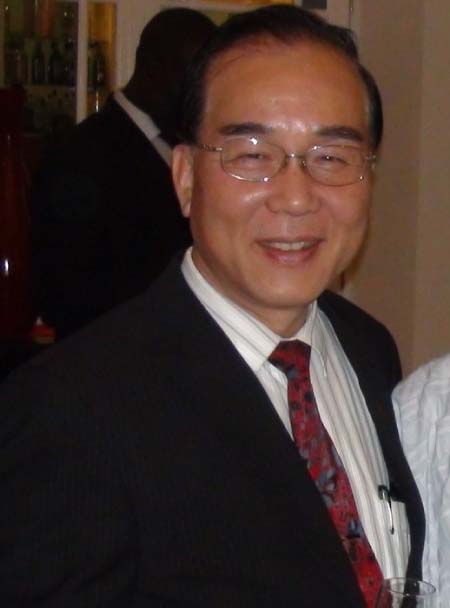
In The Gambia, a special report on the initiative was on Tuesday presented at the Laico Atlantic Hotel in Banjul during the 1st Gambia-Taiwan Club Annual meeting.
In presenting the report, John Liang, Councilor at the ROC embassy in Banjul, said part of an uninhabited chain of islands in the East China Sea is being claimed by China, Japan and Taiwan.
According to him, the disputed sea is about 7sq km and lies about 100 nautical miles northeast of Taiwan, ROC.
“The islands are close tostrategically important shipping lanes, offer rich fishing grounds, may contain undersea oil and gas reserves,” he added.
Looking at the Diaoyutai Islands from the perspective of history, geography, geology, practical use or international law, the islands are an inherent part of the territory of Taiwan, ROC, he stressed.
He revealed that the Diaoyutai Islands were first discovered, named, and used by Ming China (1368–1644).
According to him, in the 15th century, the Chinese discovered the islands and named them Diaoyutai (Fishing Platform), Huangwei (Yellow Tail), and Chiwei (Red Tail), demonstrating intimate knowledge of the rich fishing resources in nearby waters later used by Taiwanese fishermen.
“Chinese used them as navigation posts en route to Okinawa and the islands were incorporated into Ming China’s coastal defence system,” he stated.
Mr Lian added that these official records demonstrate Ming China’s long and continuous effective administration over the islands as part of Taiwan.
“Since the Diaoyutai Islands were part of Taiwan, the only basis of Japan’s legal rights is the 1895 Treaty of Shimonoseki, which was nullified after World War II,” he revealed.
He noted that the 1943 Cairo Declaration stipulated that “all the territories Japan has stolen from the Chinese, such as Manchuria, Formosa (Taiwan), and the Pescadores, shall be restored to the Republic of China.Japan will also be expelled from all other territories which she has taken by violence and greed.”
From 1945-1971, the Diaoyutai Islands were under the administration of the U.S., not Japan, thus Japan’s claim that it has administered the islands for over a century is misstating the facts, John further stated.
He said that prior to 1971, Taiwan did not lodge protests with the Japanese government because the islands were under U.S., not Japanese, administration.
“Since 1971, the U.S. has reiterated that the transferring of administrative rights of these islands to Japan does not constitute a transfer of sovereignty.The U.S. has maintained a policy of neutrality and has reiterated that it does not take a position on the ultimate sovereignty of these islands,” he added.
The Taiwanese diplomat stated that in order to prevent further escalation of tension in East Asia, President Ma Ying-jeou proposed an East China Sea Peace Initiative in August 2012.
According to him, part of the initiative was for all claimants to refrain from taking any antagonistic actions, shelve controversies and not abandon dialogue.
The initiative also calls on all parties concerned to observe international law, and resolve disputes through peaceful means.
He said the Taiwanese president’s initiative also encourage the claimants to seek consensus on a code of conduct in the East China Sea.
It also calls for the establishment of a mechanism for cooperation on exploring and developing resources in the East China Sea.
John Liang stated that on September 7, 2012 President Ma unveiled the guidelines for the implementation of the East China Sea Peace Initiative in two stages.
The first stage calls for a peaceful dialogue and mutually reciprocal negotiation, while the second stage suggests the sharing of resources and their cooperative development.
“The Gambia is a peace-loving country as Taiwan, ROC and, we hope, you will support regional peace and stability in East Asia,” he concluded.
Meanwhile, Gambian lawmakers on Tuesday unanimously passed a resolution supporting the East China Sea Peace Initiative of Taiwan.
Responding to this development, the Minister of Foreign Affairs, Sussan Wafa-Ogoo, welcomed the move saying the people of Taiwan are a peace-loving people, and the initiative is a good one.
Ambassador Samuel Chen, set the tone for the discussion on the East China Peace Initiative.
Higher Education Minister, Dr Momodou Tangara, hailed Taiwan for helping to develop the human resource base of The Gambia.




